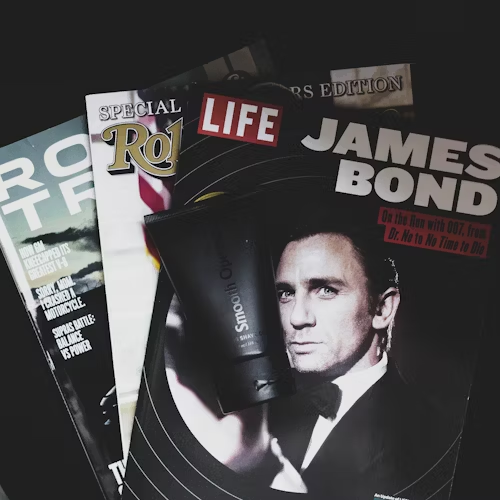Ever found yourself staring at the ceiling at 3 AM, wondering if that fancy sleep gadget on your nightstand is actually doing anything? Or maybe you’re eyeing a “smart” sleep mask online, thinking, “Will this finally fix my insomnia, or is it just another nonsense I just bought?
Let’s get real. Sleep gadgets are dominating the scene today trackers, masks, white noise machines, even pillows that will “hack” your sleep. But the big question is…. Do they really work? And even if they do , how in the world can you even use them correctly? Grab your go-to snuggle blanket or maybe a bowl of popcorn and let’s begin.
What Are Sleep Gadgets?
Sleep devices are piece of hardware that try to increase the quantity, quality, or amount of your sleep. There come in two type: the technophobes (i.e., smart mattresses or sleep trackers), and then the non-technophobes (like weighted blankets or sunrise simulating alarm clocks).
These gadget main aim is to help you sleep quicker, sleep more, and wake up more comfortably in the morning.
But the big question is: Is this just a simple magic or science? Let’s address it.
How Sleep Gadgets Really Work
Let’s see whether or not sleep gadgets work. All the gadgets seem to aim for one (or more) of the following sleep-killers:
- Stress and Anxiety
-
Poor Sleep Environment (light, noise, temperature)
- Unconsistent Sleep Schedule
- Physical Discomfort
Best Gadgets That Works For Sleep
Let’s discuss popular gadgets and how they aim to improve sleep:
1. Sleep Trackers (e.g., Fitbit or Oura Ring)

What they do: Track your activity, heart rate, and even your temperature to differentiate between sleep stages (light, heavy, REM).
Do they work? They are very good at differentiating between sleep and wake but not all that accurate to differentiate between some sleep stages. But they can track trends perfectly well.
Pro tip: Use the data to adjust your bedtime routine. That is, if your tracker is saying you’re restless tossing around that might be because you have late dinner.
2. White Noise Machines (or Apps)

What they do: Suppress annoying noise (They can suppress barking dogs or snoring roommate) with calming background noise.
Do they work? Yes! according to scientist after indept research white noise makes it easier to sleep, especially in noisy environments.
Pro tip: White noise feels to noisy? Change to pink noise it’s less harsh, and sound like rain or you can also try brown noise.
3. Weighted Blankets

What they do: Offer light pressure that replicates a therapy called “deep pressure stimulation,” which reduce anxiety.
Do they work? Yes! For most everyone! In 2020, scientists found that 63% of adults said their anxiety went down when they were wrapped in a weighted blanket.
Pro tip: Buy one that’s ~10% your weight. Too heavy = discomfort, too light = no effects.
4. Smart Light Bulbs (Like Philips Hue)

What they do: Mimic sunrise/sunset to control your circadian rhythm by mimicking the color and brightness shift of the light.
Do they work? Science guarantees that they do! Dawn bright blue light stimulates alertness, but soothing dim light at night causes your brain to secrete melatonin (the sleep hormone).
5. Cooling Mattress Pads

What they do: Regulates your bed temperature to a comfortable level—ideal for night sweaters or hot flashes during menopause.
Do they work? If you’re a hot sleeper, these will be your holy grail. Cool temperatures (60-67°F) have been proven through studies to trigger deeper sleep.
Do Sleep Devices Work on Everybody
Here’s the thing: Sleep machines are technology, not magic. They won’t heal chronic insomnia or sleep apnea (ask your doctor about that!). But with purpose, they can help with some things.
Case Study
Lets talk about my friend Sarah who swore that her $300 genious sleep mask was money down the drain… until she remembered that she had been wearing it backwards.? But immediately she worked on it , the guided meditation exercises on it calmed her down.
- Lesson learned: Even the most genious gadget needs some human effort.
A Step-by-Step Guide to Getting Sleep Gadgets to Work
Ask yourself:
- Do I struggle to fall asleep, stay asleep, or wake up groggy?”
- “Is my bedroom too loud, bright, or hot?”
For example if a light sleeper that the little cry of a newborn can wake you up, then the best you should go for is the white noise machine. If you’re a toss-and-turner and you just can’t seem to roll around in bed without having to get up and get out of bed, a weighted blanket is the answer.
Step 2: Begin Small (Don’t Break the Bank!)
You don’t need to have ALL the gadgets. Choose and drop according to your problem.
Budget hack: Free white noise apps vs. $200 devices.
DIY hack: Blackout curtains vs. a smart sleep mask.
Step 3: Consistency is Key
Gadgets won’t work magic in one night. Utilize your tracker or journal for 2-3 weeks and see patterns develop.
Step 4: Utilize with Good Sleep Hygiene
No device can over-caffeinate your late dinner routine. Balance technology with basics
Establish a bedtime routine
No computer/TV/laptop in bed
Drink less alcohol/caffeine
The Payback of Getting It Right
Sleep technology is reaping benefits for you and the payoff is amazing:
- Better Mood: Ever waking up in a bad mood after a terrible night’s sleep?
- Better Concentration: Quality sleep gives you better memory and problem-solving skills.
- Better Body: Weight gain, heart disease, and impaired immunity are the costs poor sleeping habits.
FAQs: Lets Answer Your Burning Questions
Q: Are sleep devices safe?
A: Generally! Steer clear of invasive ones (e.g., unapproved supplements). On wearables, look for FDA clearance.
Q: Do I need to see the doctor?
A: If you’ve tried everything else and you’re still awake, fine. You’re probably need to do something.
Q: What’s the sleep gadget is overhyped?
A: Blue-light-blocking glasses. They work a little bit, but reducing screen brightness and not scrolling on your phone in the evening is better.
Conclusion
If you have already tried counting sheep, melatonin gummies, and ASMR videos and nothing worked…then try technology. Start with just one low-tech gadget, play around with it deliberately, and record what you do.
But remember: Sleep is personal. What works for your TikTok-famous cousin might not work for you. Be patient, experiment, and don’t forget the basics (yes, put down the phone!)
References
Harvard Medical School’s Sleep Division
“Why We Sleep” by Matthew Walker, PhD
Hot Picks
What You Don’t Know About U.S TikTok Ban
What is The Best Tower Fan to Buy in 2025?



